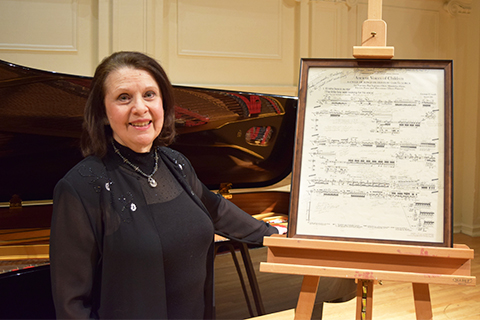

|
Barbara Ann Martin graduated from the Juilliard School in New York after completing both her Bachelor's and Master's Degrees in Voice and Opera Theater. Some of her mentors were also individuals that she studied with, including Florence Page Kimball, Alice Howland, Antonia Lavanne, Cornelius Reid, James Carson, and Susan Charles. Martin has a passion and natural talent for voice, but specializes in classical and music theater voice training. Her achievements stem far and wide, as she has performed all
throughout the United States, Europe and Asia, and made appearances
at various music festivals such as Aspen, Boulder, Ravinia, Caramoor,
Huddersfield, Adelaide, and Salzburg. In addition to this, she was an
apprentice at the Metropolitan Opera in New York, and the Central City
opera Company in Colorado. She has sung composer George Crumb's master-work,
"Ancient Voices of Children" with the Chicago Symphony Orchestra, the
Berlin and New York Philharmonics, the Vienna Symphony Orchestra, the
Maggio Musicale, the Montreal Symphony, and the Israel Philharmonic to
critical acclaim (as well as the recording shown below).
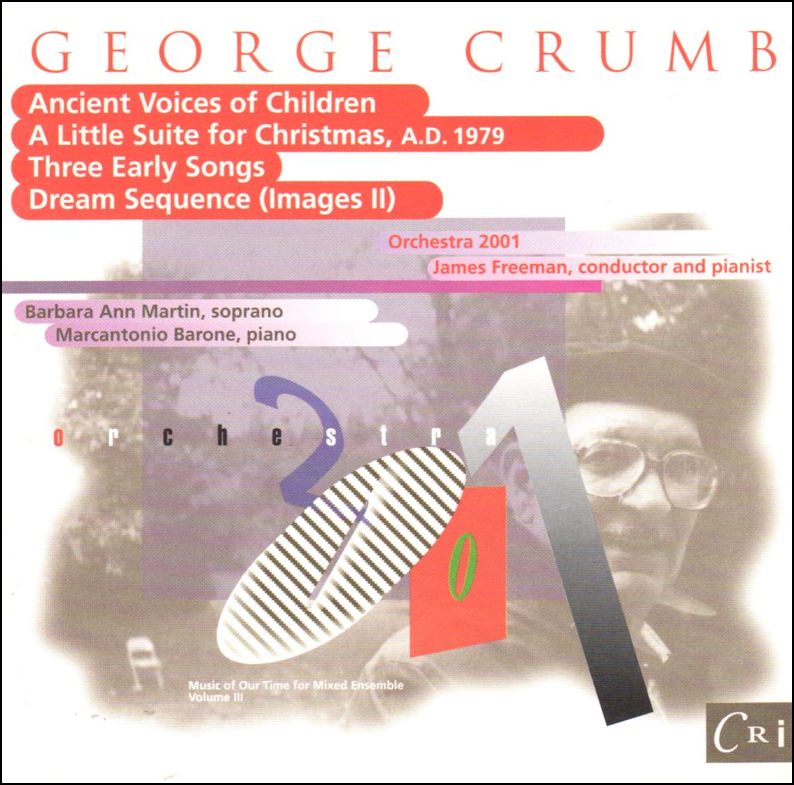
She has had several opera appearances, which include the
Metropolitan, Chicago, Central City, New Jersey State, and Minnesota Operas.
Several of Martin's recordings feature works by Dominick Argento, Milton Babbitt, Crumb,
Alan Hovhanness,
Karel Husa,
George Rochberg,
Augusta Read Thomas,
Virgil Thomson,
Louise Talma,
and Chinary Ung. She is also the featured soloist with James Freeman
and Orchestra 2001 on the 2010 Grammy-Nominated CD, "A Journey Beyond
Time and The Winds of Destiny" [shown below].
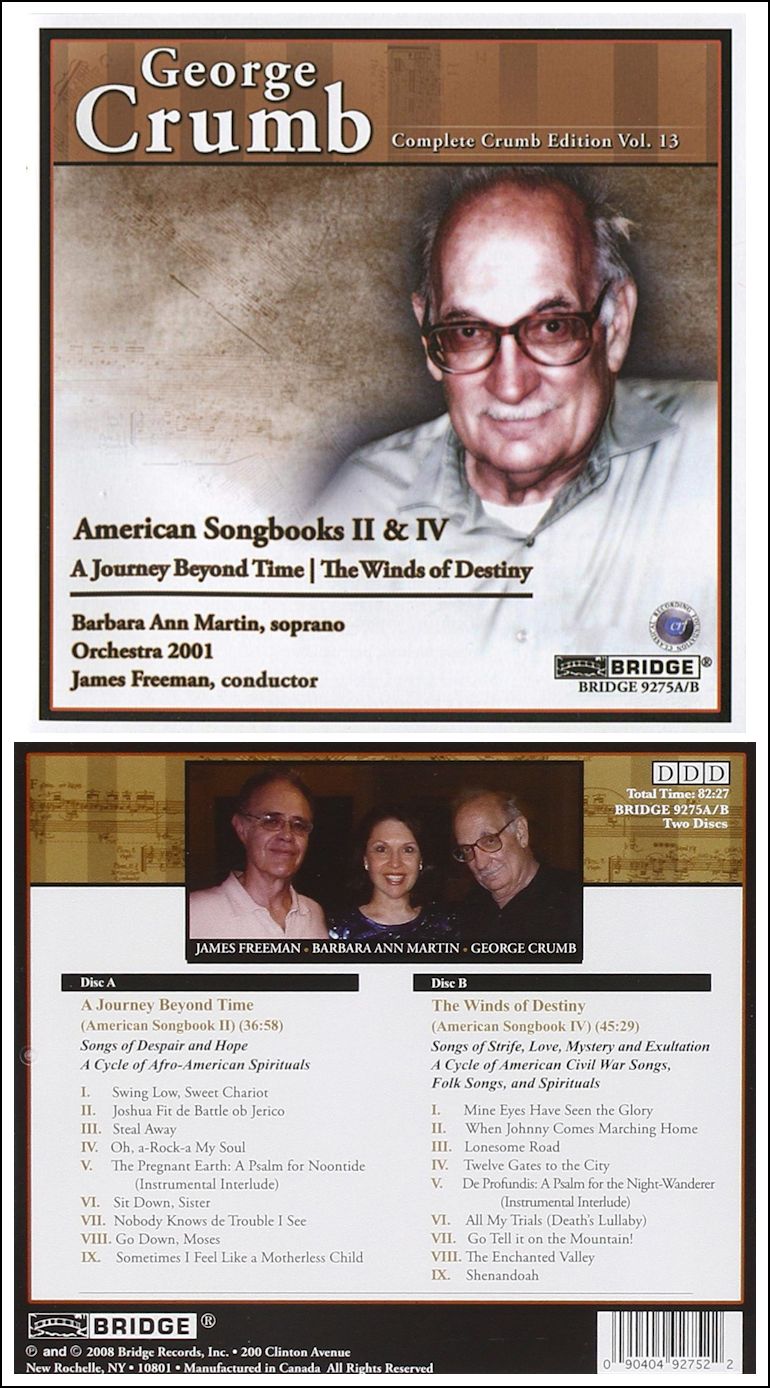
Martin has also been a guest professor and Artist-in-Residence
at the International Summer Academy Mozarteum in Salzburg and the Royal
Danish and Odense Conservatories in Denmark. She has served on the
faculties of Bennington College, CUNY at Brooklyn and is currently Voice
Department Chair at the Music Institute of Chicago. As an audio book
narrator, her work is featured on Amazon.com, and Audible.com. She is
also a member of NARAS (Grammys), and is an active member of SAG/AFTRA,
serving on the Singers and Audio Book Committees in Chicago. == Names which are links in this box and below refer to my interviews elsewhere on my website. BD |
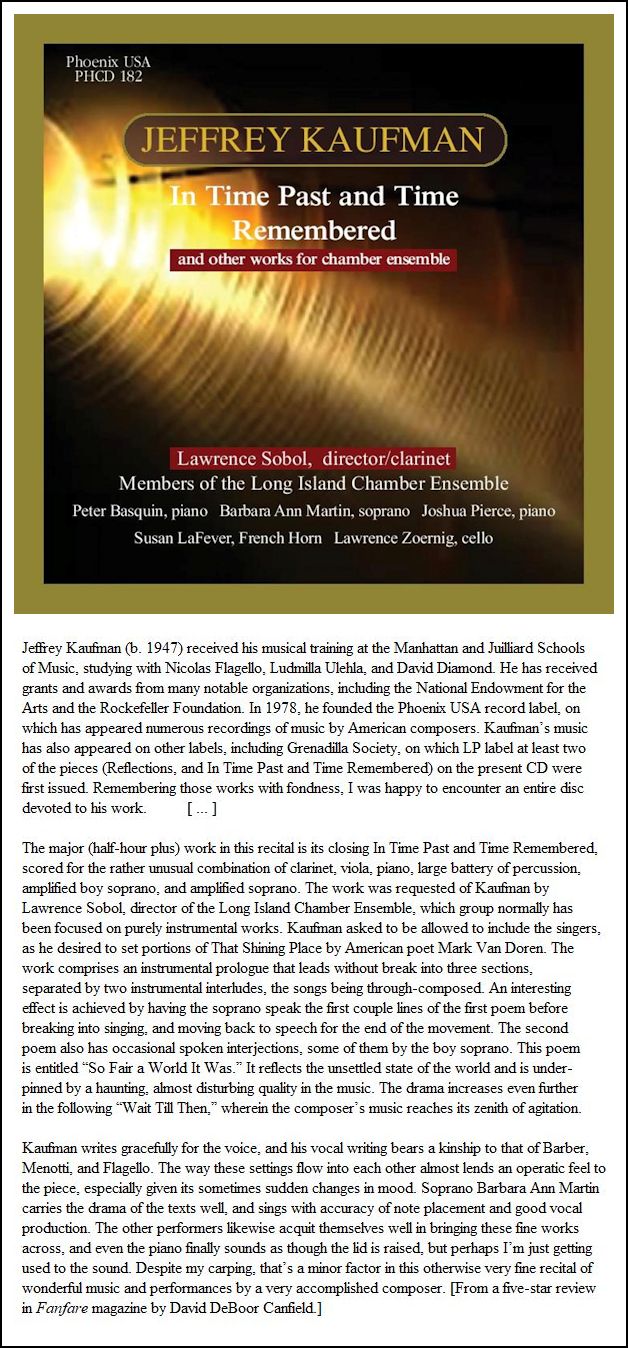 Martin: No, I don’t.
Martin: No, I don’t.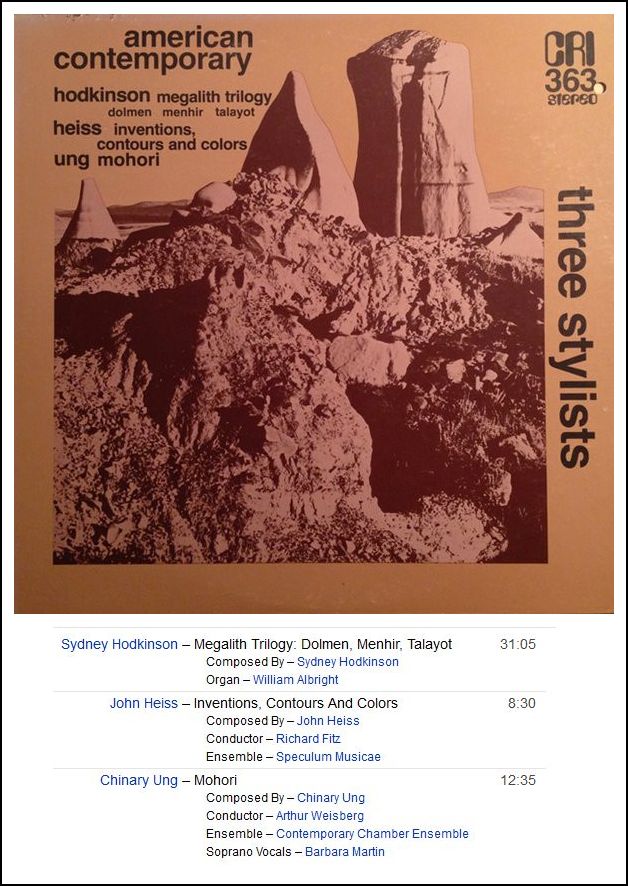 BD: That’s a lot for a new piece.
BD: That’s a lot for a new piece.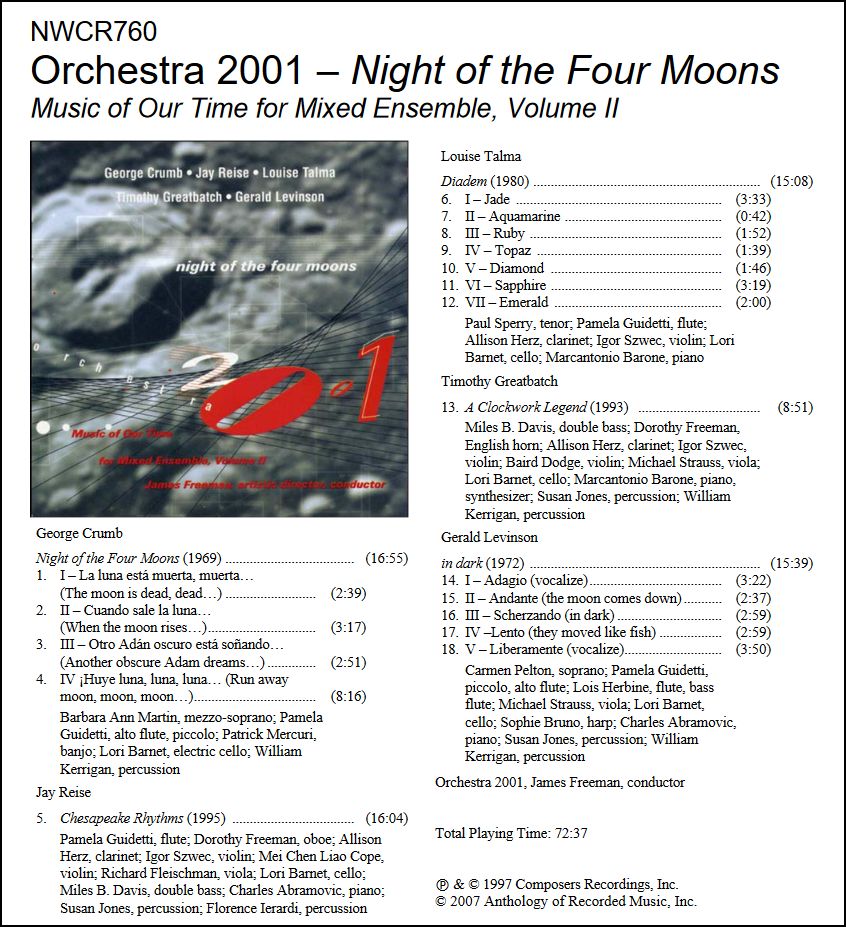 BD: He probably didn’t know, earlier.
Maybe it was spontaneous.
BD: He probably didn’t know, earlier.
Maybe it was spontaneous.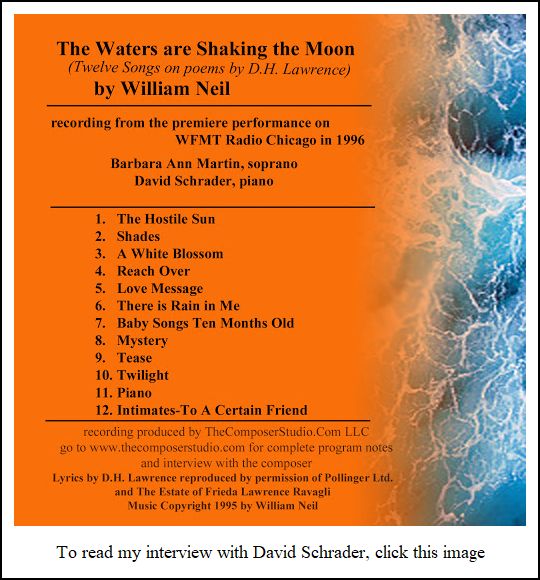 Martin: [Thinks a moment] There are many things
in our world that seek to smother the human spirit, that seek to diminish
us. These include political ideologies, and people who do things
in the name of whatever religion they espouse. People from many walks
of life and many economic backgrounds want to diminish what we have to
offer as human beings. Music is one of the highest forces we have
to elevate the human spirit. For me, it is one of the voices of
God. It is something that vibrates through all nature, through everything
that lives, and everything that is inanimate. Everything relates
to vibrations of sound, of energy, and it’s my purpose to be as truthful
and as honest as I can to give birth to that music as it passes through
me. For me, music is our future as well as our past. Right now,
we really need the joy and the beauty and the laughter and the love that
music gives us.
Martin: [Thinks a moment] There are many things
in our world that seek to smother the human spirit, that seek to diminish
us. These include political ideologies, and people who do things
in the name of whatever religion they espouse. People from many walks
of life and many economic backgrounds want to diminish what we have to
offer as human beings. Music is one of the highest forces we have
to elevate the human spirit. For me, it is one of the voices of
God. It is something that vibrates through all nature, through everything
that lives, and everything that is inanimate. Everything relates
to vibrations of sound, of energy, and it’s my purpose to be as truthful
and as honest as I can to give birth to that music as it passes through
me. For me, music is our future as well as our past. Right now,
we really need the joy and the beauty and the laughter and the love that
music gives us.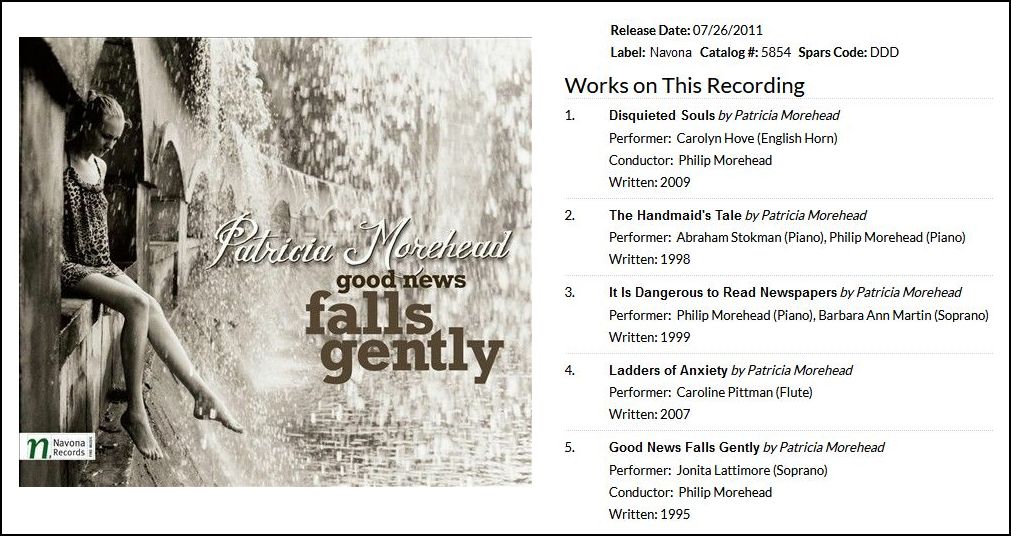
© 1998 Bruce Duffie
This conversation was recorded in Chicago on February 22, 1998. Portions were broadcast on WNIB two days later, and again in 2000. This transcription was made in 2020, and posted on this website at that time.
To see a full list (with links) of interviews which have been transcribed and posted on this website, click here.
Award - winning broadcaster Bruce Duffie was with WNIB, Classical 97 in Chicago from 1975 until its final moment as a classical station in February of 2001. His interviews have also appeared in various magazines and journals since 1980, and he now continues his broadcast series on WNUR-FM, as well as on Contemporary Classical Internet Radio.
You are invited to visit his website for more information about his work, including selected transcripts of other interviews, plus a full list of his guests. He would also like to call your attention to the photos and information about his grandfather, who was a pioneer in the automotive field more than a century ago. You may also send him E-Mail with comments, questions and suggestions.